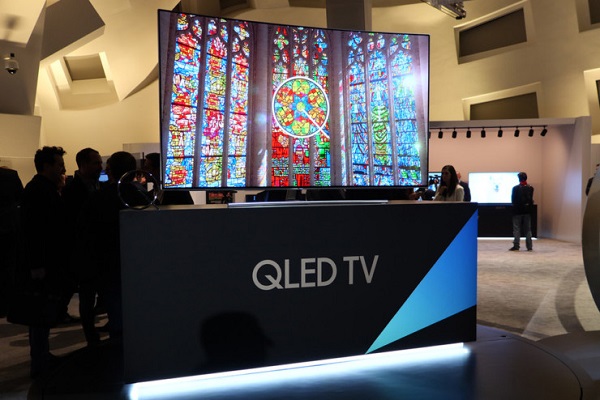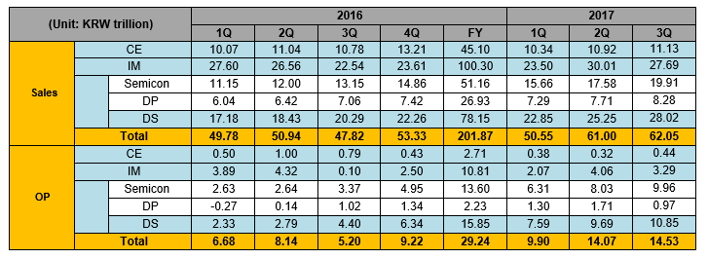Samsung Electronics today announced financial results for the third quarter ended September 30, 2017. Samsung’s revenue for the quarter was KRW 62.05 trillion, an increase of KRW 14.23 trillion YoY, while operating profit for the quarter posted a record KRW 14.53 trillion, an increase of KRW 9.33 trillion YoY.
 |
|
(Image: 4k.com) |
In the third quarter, the display panel segment posted an earnings decline despite the expanded sales of flexible OLED panels for premium smartphones.
In the display segment, Samsung will continue seeking growth by addressing market demand for flexible OLED display panels with differentiated technology, as OLED is set to become a mainstream feature in smartphones. Although global competition in the LCD panel business is expected to intensify in 2018, Samsung will strive to ensure its profitability by solidifying partnerships with key customers and enhancing the lineup of ultra-large size, high resolution, quantum dot and frameless panels.
The Display Panel segment posted a KRW 8.28 trillion in consolidated revenue and KRW 0.97 trillion in operating profit for the third quarter. Revenues increased due to strong sales of flexible panels. However, total earnings declined driven by increased costs for starting-up new OLED production and decreased ASP for LCD panels.
For the OLED business, an increase in shipments of flexible displays for customers’ new flagship launches drove an increase in sales QoQ. However, QoQ earnings declined due to increased competition within rigid OLED products and startup costs of the new OLED production line. The company plans to focus on achieving continuous growth through customers’ demand for flexible displays and through differentiated high-end products.
Samsung’s TV business saw significant improvements in QoQ earnings driven by increased sales of premium products including QLED TVs. However, due to the higher cost of LCD TV panels and weakening demand of the TV market, YoY earnings were modestly lower.
 |
|
(Source: Samsung Electronics) |
In the fourth quarter, Samsung will focus on profitability, by increasing the dominance in the premium QLED and ultra-large TV lineups, as well as reinforcing B2B growth including digital signage and Cinema LED businesses.
Looking ahead to 2018, major sports events, including the World Cup and Winter Olympics, are expected to drive demand for UHD and ultra-large screen TVs. Samsung will reinforce its market leadership in the premium market and further improve profitability by increasing the QLED and ultra-large TV lineups.













